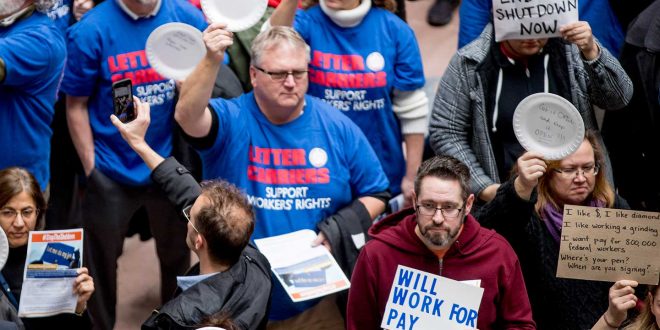Alice Zhong
A government shutdown, as stated in the U.S. Constitution, require all expenditures of federal funds be authorized by Congress with the approval of the President of the United States. The U.S. federal government and the federal budget process operates on a fiscal year cycle from October 1 to September 30.
If Congress or the president fails to pass all spending bills that make up the annual federal budget or “continuing resolutions” to extend spending beyond the end of the fiscal year certain non-essential functions of the government may be forced to cease due to a lack of congressionally-authorized funding. The result is a government shutdown.
As directed by the Office of Management and Budget, the federal agencies now have contingency plans for dealing with government shutdowns. The emphasis of those plans is to determine which functions should continue.
Based on past shutdowns, here is how a long-term government shutdown might impact government-provided public services.
- Social Security: Benefit checks would keep coming, but no new applications would be accepted or processed.
- Income Tax: The IRS will most likely stop processing paper tax returns and refunds.
- Border Patrol: Customs and Border Patrol functions will continue as usual.
- Welfare: Again, the checks would continue, but new applications for food stamps might not be processed.
- Mail: The U.S. Postal Service is self-supporting itself. Mail deliveries would continue as usual.
- National Defense: All active duty members of all branches of all armed services would continue duty as usual, but most likely not get paid on time. More than half of the Defense Department’s 860,000+ civilian employees would be furloughed.
- Justice System: Federal courts are slated to remain open
- Farms/USDA: High risk food safety inspections will continue, but rural development, farm credit and loan programs will close down.
- Transportation: Air traffic control, TSA security personnel, and the Coast Guard will remain on the job without pay. Applications for passports and visas may not be processed.
National Parks/Tourism: Federal parks, forests, national monuments and historic sites will close. Visitor and interpretive centers will be closed. Non-volunteer rescue and fire control services will be shut down.
 Tempus Magazine By Students, For Students
Tempus Magazine By Students, For Students 



